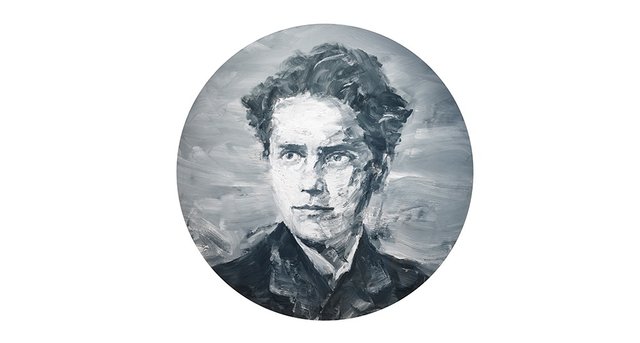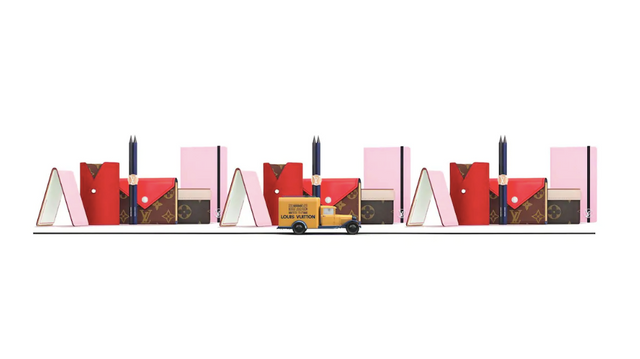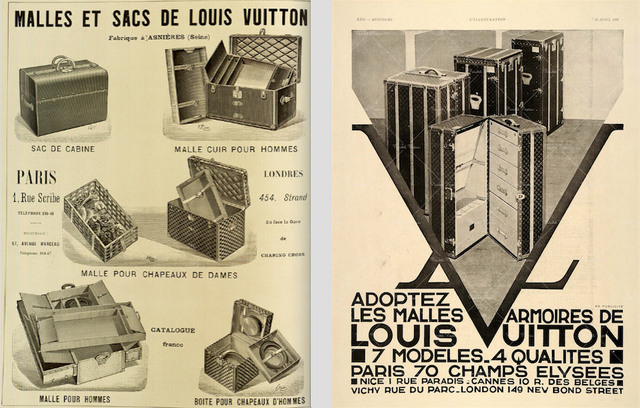Volez! Voguez! Voyagez! - Louis Vuitton and the Importance of Journey
Do you wonder why is the ugly brown bag one of the world's most sought-after? Well, it is not about short-lived looks or wealth show-offs, oh no (well mostly yes), but there is a time, intellignece, effort and a story behind it, and a damn good one.
It all started with a teenage boy born in 1821. in some remote village in rural France where people lead a boring and difficult life, had a weird dialect and where nothing ever happened. A boy was a bright boy, and like every of his fate, misinterpreted in a narrow-minded environment. He anticipated something different, something more stimulating.
One day he felt like walking. He packed his stuff in some bedsheet, tied the rope around it, jamed it on the wooden stick and hit the road. He slept in the dark woods and worked as a glazier, mechanic, metalworker, carpenter... which all proved as useful, and after a year of wandering around he finally made it to the City of Light.
He used the acquired knowledge and started to build leather bags and trunks, with an expertise and a quality never seen before. Everyone wanted this trunks and soon, a boy established a company, and up to this day no one could beat it in its niche - after more than 150 years almost the same trunks are being made.

Source: www.classicdriver.com
Young Louis Vuitton by Yan Pei Ming

Source: louisvuitton.com
From the LV gift campaign. Luxury 'tchotchkes' are small adorable products, like wallets, keychains or telephone cases. Everyone is crazy about those as you can have a brands dream in a pocket.
This man had successors who continued his idea. Georges Vuitton continues to expand the house and opens up stores around the world. He is the one having credits for LV monogram inspired by Japanese Mon designs in the Victorian period, which was supposed to serve as a protection from counterfeiting, and ironically this is the one of the world's most counterfeited monogram. But, the company doesn't panic, they sue everything and everyone who might threaten the brand's image, because that is what people who take themselves seriously do. The team of lawyers work diligently to preserve the brand's reputation.
In 1987. Moët, Hennessy and Louis Vuitton joined the forces and LVMH became the largest luxury conglomerate, which increased the profits for Louis Vuitton. In the 1997. the brand has started RTW line with Marc Jacobs as creative director. Since 2013. the creative director is Nicolas Guesqhière, one of the best out there.
LV sells the products exclusively through their own channels (vertical integration), control the product quality and pricing better which secures them more profit and tackles the issue of counterfeiting. They don’t have sales and the unsold products are being destroyed - I imagine them shredded, burned in some creepy chamber, etc... Do they even preserve some pieces that can be reused, like zippers? So they just burn the valuable leather that some animal had to die for like that? Now we're talking exclusivity, better dead, than cheap.
How does the world's most luxurious do marketing?
''Volez! Voguez! Voyagez!'' – ''Fly! Sail! Travel!'' are the words under which the vintage LV advertised and represent the values which they stand for. Journey for LV represents an expansion of one's worldview through adventure and exploration of the new possibilities in world and themselves. Destination? It is the process that matters, and it is also important to enjoy it. That's what LV says, and the man behind it started the journey with 13 years only. "Where will life take you?" is the question LV asks.
In 1950s Audrey Hepburn presented the bag on screen in the Charade movie. Since then the company likes to connect the image of the brand with top stars like Jennifer Lopez, Keith Richards, Angelina Jolie, Madonna, Mikhail Gorbachev, Catherine Deneuve.
Management
A brand with traditional values is successfully innovating in concepts and models of business management. They collaborated with today’s most prominent artists - Bob Wilson, Takashi Murakami, Yayoi Kusama. In 2003. Takashi Murakami has created a new Monogram Multicolore canvas for the bags and accessory in 33 colours. The creations were "painted" over the traditional monogram canvas, which brought a radical new touch to the timeless design. This was an experiment for the Japanese market when LV opened a building in Tokyo's Ginza district, which provet to be a highly successful one.
The Company was aware that going to the Japanese market would bring enormous profits because Japanese culture has been obsessed with status objects and luxury brands since the 1970's, and LV has decided to adapt and supplied its customers with the desired items but did that in a bit different way. They kept the image of the company, stayed loyal to its original vision but adjusted the strategy to stay relevant to their different customer base.
The LVMH Chairman and CEO Bernard Arnault is involved in every collection from the start. He says he likes to “go into my shops incognito and serving people. I’ll do that abroad, especially in Japan, and nobody recognizes me. The sales staff always find it most amusing.” This gives Arnault first hand insight into what’s working and what not, and then he goes to Nicolas Ghesquiere with updated and tested ideas.

Source: fineartamerica.com; messynessychic.com
Vintage LV advertisement
*Some of the statements are just my imagination (based on a true story)